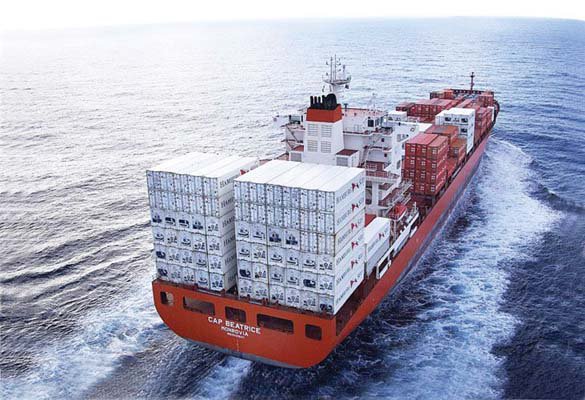New Zealand agricultural exporters have been assured they will be excluded – at least initially – from a planned tax on the carbon content of imports into the European Union.
The bloc’s so-called carbon border adjustment has been designed to maintain the competitiveness of European businesses that have to offset their emissions with carbon credits purchased from the EU’s Emissions Trading Scheme.
Exporters to the EU who have not paid to offset emissions in their own countries will be taxed at the border to cancel out any cost advantage they have over EU competitors.
A member of the European Parliament’s trade committee, Karin Karlsbro, told members of the International Business Forum (IBF), which includes major exporters Fonterra, Silver Fern Farms and Zespri, among others, that the EU has set itself ambitious climate targets and doesn’t want to see the impact of these undermined by climate change laggards elsewhere.
“There is a risk production moves from the EU to countries with lower climate ambitions and lower or no price on carbon emissions,” she said.
“Such leakage undermines our effort to lower carbon emissions globally.”
A top official in the European Commission’s tax directorate, Vincente Hurtado Roa, told the IBF members that the tax will initially protect the most carbon-intensive industries in the EU along with those at the highest risk of moving production offshore to low or zero carbon tax countries.
These are makers of cement, iron and steel, fertiliser and aluminium.
They still only account for 45% of the industries required to buy credits from the EU’s ETS.
“There are some calls to extend to other basic products like chemical polymers and plastics.
“That is something that will need to be discussed [but] we prefer to concentrate on these sectors, check how it works and after that we will consider the possibility of extending.”
Exporters competing with European businesses not yet covered by its ETS are safe for now, he said.
“As long as we do not apply the ETS to those sectors we will not apply the [border tax].
“We will need to look at the carbon intensity of those goods and think in terms of impact in terms of trade but the idea is not to extend the measure to forestry, agriculture or fisheries.”
European farmers do not have to buy credits to offset their emissions under the EU’s ETS.
While they are not as far along as the EU’s proposal, the executive director of the International Business Forum, Stephen Jacobi, said other countries are considering carbon border taxes to level the playing field with competitors from countries without domestic carbon charges.
But a lack of globally agreed standards means there is the potential for them to be gamed by some countries using measurement systems that suit their own producers.
Jacobi said this was particularly the case for the measurement of agricultural emissions that officials in levying countries would use to calculate border taxes.
“Instead we are seeing a proliferation of a number of carbon foot-printing approaches around the world, some of which are designed to suit particular production systems or particular national characteristics of the country involved.
“The question is how do we ensure we have a genuine and objective level playing field in this area so that carbon border adjustment mechanisms are applied fairly and consistently?”
Former European Commission official Peter Vis said that criticism is not valid for the EU’s version, however.
“We would not put into the ETS something that we don’t think can be accurately and consistently monitored.
“So the capability to monitor emissions is a precondition to coming into the ETS and if it is not in the ETS the carbon border tax would not be applied to it.”
The commission’s Hurtado Roa said while international organisations like the OECD are working on common emissions measurements, these are unlikely to be ready by the time the EU begins collecting revenue from its border tax from 2026.
“Agreeing on a common methodology would be ideal. But I am not so sure we will be able to get that before 2026.”










